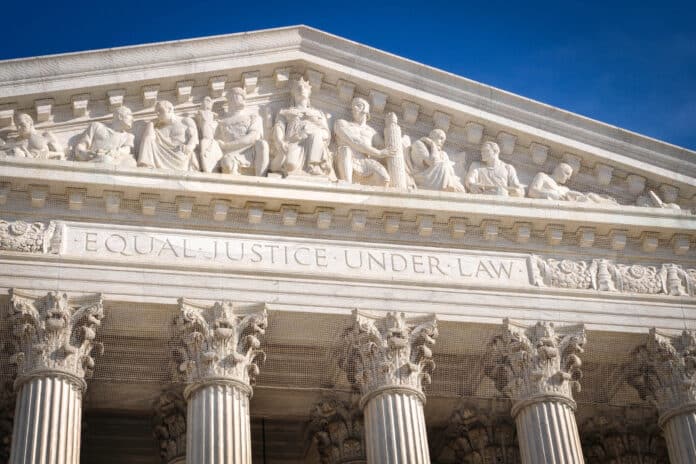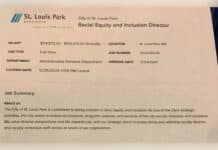(The Center Square) — The U.S. Supreme Court heard oral arguments Monday in a case evaluating how the federal government censored Americans’ speech online, especially about COVID-19 and other controversial topics.
During the arguments, justices seemed to express doubts about a prior ruling that limited federal cooperation and coercion of social media companies, particularly when the federal government pushes those companies to censor Americans’ speech.
“My biggest concern is that your view has the First Amendment hamstringing the government in significant ways in the most important time periods,” Justice Ketanji Brown Jackson said during oral arguments for Murthy v. Missouri Monday.
She added that “some might say that the government actually has a duty to take steps to protect the citizens of this country, and you seem to be suggesting that that duty cannot manifest itself in the government encouraging or even pressuring platforms to take down harmful information … .”
The case, a legal culmination of years of COVID-era controversy, comes after years of outcry over social media companies’ decisions on what to censor, and what not to censor, when it comes to COVID-19, the elections, former President Donald Trump, Hunter Biden, and more.
In 2023, U.S. District Judge Terry Doughty ruled that the federal government had gone too far and violated the First Amendment when working with private companies to quash speech and said that communication between the federal government and social media companies of this kind was off-limits.
“Plaintiffs are likely to succeed on the merits in establishing that the government has used its power to silence the opposition,” Doughty said. “Opposition to COVID-19 vaccines, opposition to COVID-19 mask and lockdowns, opposition to the lab leak theory of COVID-19, opposition to the validity of the 2020 election, opposition to President Biden’s policies, statements that the Hunter Biden laptop was true, and opposition to policies of the government officials in power. All were suppressed. It is quite telling that each example or category of suppressed speech was conservative in nature.”
The Biden administration appealed, and now the issue is before the Supreme Court, which is expected to rule by the summer.
During oral arguments, even justices seen as more conservative-leaning raised concerns, such as Justice Amy Coney Barrett, who suggested the ban on cooperating between feds and social media companies could be too “sweeping.”
Critics of the Biden administration say the federal government clearly abused its power in recent years and needs to be reined in to prevent future abuses.
The issue has significant political interests, as The Center Square previously reported. House Judiciary Committee Chairman Jim Jordan, R-Ohio, pointed to Doughty’s comments when he led a hearing last year going after the FBI for its role in pressuring social media companies to censor certain COVID-19 information as well as the Hunter Biden laptop story just weeks before the presidential election.
The laptop, and many of the controversial COVID-19 concerns, were later validated.
“American speech is censored, parents are called terrorists, Catholics are called radicals, and I haven’t even talked about the spying that took place of a presidential campaign or the raiding of a former president’s home,” Jordan said at the hearing last year. “But maybe what’s more frightening is what happens if you come forward and tell Congress … you will be retaliated against.”
At the hearing, Wray pushed back against Jordan’s claims, saying the agency is not biased.
“The idea that I am biased against conservatives seems somewhat insane to me given my own personal background,” said Wray, who is reportedly a registered Republican.

















